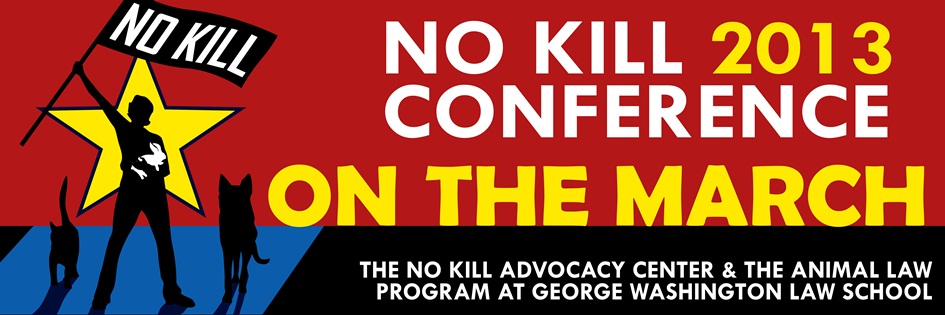
How would you feel if the animal rights group you supported was using your donations to poison “healthy” and “perfect” animals? How would you feel if the group you sent in money to assist with a “rescue” had the animals taken to a facility which gassed them to death? How would you feel if the group you were donating to because they promised to be there for the animals actually sent the neediest ones to a place which neglected, abused, and then killed them?
Would you be upset? Would you feel sick to your stomach? Would you feel betrayed? If you donate to PETA, HSUS or the ASPCA that is exactly how you should feel:
PETA: www.nathanwinograd.com/?p=11813
HSUS: www.nathanwinograd.com/?p=9895
The ASPCA: www.nathanwinograd.com/?p=9285
That is what I posted to my Facebook page recently. It generated 110 comments, received over 275 “likes,” was shared 1,148 times and was seen by 90,530 people. Judging by some of the comments, the information is still “news” for a large number of people. In fact, whenever I post about PETA, HSUS, the ASPCA and the ways in which they undermine the cause they theoretically exist to promote, one of the most common responses I see come from people who feel despair for the loss of their heroes, and, by extension, for the cause of animal protection itself. They post statements such as “We can’t trust anyone” or ask “Is there no group we can trust?’ implying that if these groups are not what they claim to be, the movement to protect animals is a hopeless and lost cause.
I understand how disappointing it is to find out that organizations once lionized aren’t what we thought they were. I, too, felt these same emotions when I became aware of the truth. But while it is natural to feel disappointment, even shock, about the true agenda of these groups, comments which portray the animal protection movement as somehow hopeless without them miss the mark and, in fact, fail to recognize the silver lining that an awareness of the truth brings with it.
The betrayals I report about these groups are not new. It is not as though HSUS or PETA were once sincere advocates for companion animals and they have moved in a new and different direction. The same is true of the ASPCA which has not been a dedicated or authentic voice for companion animals since the death of that organization’s founder, the great Henry Bergh, in 1888. As documented in my most recent book, Friendly Fire, PETA has not only been calling for the immediate death of feral cats and dogs who look like pit bulls for over 20 years, they have also been rounding up thousands of animals to kill annually. At the same time, both HSUS and the ASPCA have always been stalwart opponents of No Kill. In fact, both of them are responsible for creating and perpetuating the myths and dogmas that have historically condoned and enabled shelter killing, such as pet overpopulation, and the myth of the irresponsible, uncaring American public.
Shelter killing is a monster of their creation, one they have tenaciously defended for decades. Not only have they have historically (and in some cases, still largely) oppose the programs of the No Kill Equation that provide an alternative, life-affirming model of sheltering, but they have each championed poorly performing and even abusive shelters, while fighting shelter reform efforts nationwide. In short, neither the ASPCA, PETA nor HSUS speak for the best interest of the companion animals who are unfortunate enough to enter our nation’s shelters. Instead, they have represented the interests of those who kill them, and they always have. Every animal facing death in an American shelter today—half of all animals who enter shelters—do so because of the paradigm these groups both helped to create and continue to defend.
And yet in spite of their resistance and their obstinacy, the No Kill model of animal sheltering is succeeding. Whereas 12 years ago we had not a single No Kill community, today we have over 90 communities representing about 300 cities and towns nationwide saving between 90 and 99% of all animals. And this success comes in spite of the best efforts of these groups to stem that tide, to undermine No Kill reform efforts across the country. In the battle for the heart and soul of our nation’s shelters, they are losing ground, while we are gaining it. That is progress.
In fact, there is a silver lining which comments that speak of despair fail to recognize, and it is this: because you cannot fix a problem if you do not address its true cause, becoming aware that these groups are not what they claim provides the true animal lover with information they need to make better and more informed choices. It means that they become armed with the knowledge that allows them to no longer unwittingly support the effort to undermine, rather than further, the cause of companion animal welfare. And the more support these groups lose, the less effective their efforts to undermine No Kill become. The greater the number of people who embrace a brighter future, the more regressive they look in comparison and the closer we get to forcing them, by our size and momentum, to join rather than fight us. The truth, as the saying goes, sets us free. In this case, free from supporting groups which, in reality, work to undermine our values and our hopes for a brighter future.
While it would be wonderful if these groups were true animal protection organizations, furthering the cause of animals in shelters rather than the interests of their friends and colleagues running shelters, the sad fact is they are not and never have been, and yet we are succeeding anyway. Rather than despair to learn that these groups are not what they claim to be, animal lovers should ask themselves these simple questions: Which is better for animals? For it to be true that shelter killing is a necessary evil? Or for the killing to be unnecessary, for there to be a better way, and for these groups to be dead wrong in their defense of such a needless slaughter? If they could speak, surely the animals would choose and even celebrate the latter, and therefore, so should each of us.
We now have a solution to shelter killing and it is not difficult, expensive nor beyond practical means to achieve. And despite the efforts of HSUS, the ASPCA and PETA to thwart it, it is expanding and succeeding like never before. In 2012, over one new community per week achieved a save rate between 90% and 99% despite their opposition. The fact is, and has always been, that HSUS, the ASPCA, and PETA are wrong about shelter killing. In the end, that is cause not for anguish, but hope, optimism and renewed determination. Sure, it would be great if they joined us, but that is just a matter of time.
As I wrote in the Huffington Post,
Only time will tell how long allegiance to their kill-oriented colleagues, to their antiquated philosophies and to their failed models will hold them from the success the No Kill movement can achieve the moment they decide to embrace it. But of this much we can be certain: it is a generous and animal-loving American public that pays their salaries. And the more Americans hinge their donations on an organization’s sincerity, integrity and performance rather than its superficial label, the sooner our nation’s large, animal protection groups will be forced—by sheer necessity—to start building, rather than blocking, the road to a brighter future for America’s animals.
Until then, better a lost hero than a life needlessly lost.
—————-
In 2012, over one new community per week achieved a save rate of at least 90% and as high as 99%. The No Kill revolution is ON THE MARCH. Join me as we celebrate that achievement and teach you how to do the same: nokillconference.org
